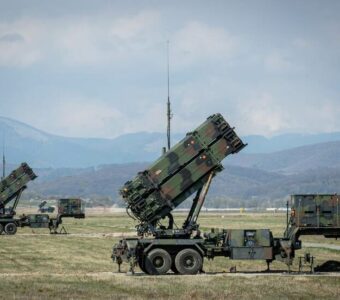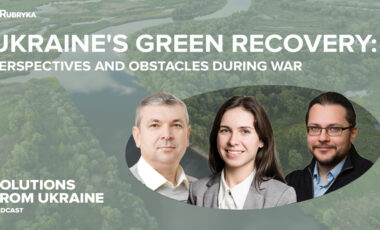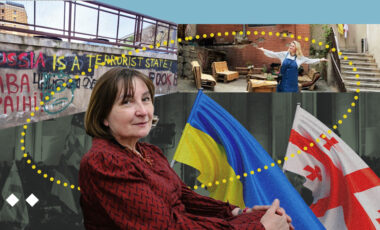Almost 60% of Ukrainian citizens feel hope for better future for their country – survey

Photo: GETTY IMAGES
When thinking about the future of their country, Ukrainians mostly feel hope (59%), anxiety (42%), and optimism (33%).
Rubryka reports, citing a face-to-face survey conducted by the Ilko Kucheriv Democratic Initiatives Foundation together with the Center of Political Sociology during June 5-15, 2023.
The key emotions that Ukrainians feel when thinking about the future of their country continue to be hope (59%), anxiety (42%), and optimism (33%).
During the full-scale war, optimism and hope for a better future for the country reached one of the highest indicators since the Revolution of Dignity in 2014, when Ukrainians protested the anti-EU and pro-Russian president and government.
At the same time, the growth of negative emotions and the decrease in optimism during June 2023 cause concern since negative feelings about the future are associated with the willingness of respondents to agree to a quick end to the war at any price.
The increase in indicators of negative emotions could have been influenced by the Kakhovka dam destruction, which occurred during the survey. However, additional monitoring is needed to confirm this hypothesis.
Compared to men, women more often reported fear (+16%), anxiety (+12%), and confusion (+9%). The lower prevalence of negative scenarios of the state's future among men positively affects the mobilization potential of the Armed Forces.
At the same time, men may have deliberately avoided reporting negative emotions during the interview because they thought this would undermine their manliness in the eyes of the interviewer.
According to the interviewed Ukrainians, the main threats in the near future, both at the level of individual households and at the level of the state, will be:
- the death of people as a result of hostilities,
- rising prices for essential goods,
- loss of sources of income.
Despite everything, more than half of the respondents (53%) are ready to suffer the consequences of war now for the sake of victory in the future.
30% of Ukrainians want the war to end as soon as possible under any conditions. However, only 8% of respondents are ready to make at least some concessions for the sake of a quick end to the war.
The survey showed that some citizens want a quick end to the war because of the following:
- fear of significant losses,
- the idea that the Russian Federation has more resources than Ukraine,
- doubts about the duration of support from the West.
Meanwhile, the absolute majority of Ukrainians (56%) believe that Ukraine's support from the West will be long-lasting. Moreover, more than half of them are not ready to stop the armed struggle if such military or economic support stops.
As of mid-June 2023, more than three-quarters of Ukrainians (77%) were quite sure of Ukraine's victory, and another 16% rather believed in victory.
The belief in victory has remained practically unchanged since August 2022. This high level of belief can be attributed to citizens' awareness of the severe threat of the nation's complete extermination in the event of a military defeat. The share of respondents who do not believe in victory is quite small, which does not allow for identifying the reasons for such despair.
A total of 2,001 respondents aged 18 and over were interviewed in Vinnytsia, Volyn, Dnipropetrovsk, Zhytomyr, Zakarpattia, Zaporizhia, Ivano-Frankivsk, Kyiv, Kirovohrad, Lviv, Mykolaiv, Odesa, Poltava, Rivne, Sumy, Ternopil, Kharkiv, Kherson, Khmelnytskyi, Cherkasy, Chernihiv, Chernivtsi regions and the city of Kyiv (in Zaporizhzhia, Kharkiv and Kherson regions, only in those territories controlled by Ukraine and where hostilities are not taking place).
The sampling is multi-stage, using a random selection of settlements in the first stage and a quota selection of respondents in the final step. The sample population reproduces the demographic structure of the adult population of the territories where the survey was conducted as of the beginning of 2022. The maximum random sampling error does not exceed 2.3%.























































